
by To-Wen Tseng | Jun 10, 2016 | 2016, The Americas, To-Wen Tseng, USA, World Motherhood
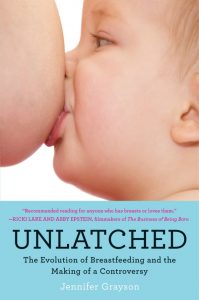
Jennifer Grayson is an author, journalist, columnist, and a leading expert on environmental issues. UNLATCHED: The Evolution of Breastfeeding and the Making of a Controversy is her first book and her global exploration of the breastfeeding uproar and the bond that makes us human. #WorldMom To-wen Tseng is featured chapters six and seven of the book.
A conversation with Grayson:
What inspired you to write the book?
I had a few epiphanies that ultimately led me to write Unlatched, but the first one happened when I was pregnant with Izzy, my older daughter. One afternoon, I went to get the mail, and there was one of those maternity marketing “gift” packages waiting for me, with a large container of infant formula inside.
I had planned on breastfeeding, but like a lot of expecting moms I was nervous at the prospect of being my baby’s sole source of nourishment for the first six months. Could I really make it that long? So I went to the pantry to stash the formula, just “in case.” But before I could, my husband stopped me to look at the ingredients on the back of the package. I’m usually an obsessive label reader, so I was shocked when I turned over the container and saw corn syrup, soy oil, a plethora of unpronounceable ingredients… I had never even considered what was in this substitute that we so readily offer as an alternative to the breast. And then I realized: Hey, this is what I was exclusively fed as a baby! Those printed ingredients, on the back of that plastic package, were the building blocks of my life. I’ve struggled with chronic health issues since adolescence, and for the first time in my life I considered that there could be a connection.
The book is subtitled “The Evolution of Breastfeeding and the Making of a Controversy.” You explored some amazing and even shocking history about breastfeeding and bottle feeding. What impressed you the most?
One of the most surprising discoveries had to do with when, historically, the shift from breastfeeding to bottle-feeding first occurred. I had always thought it was during the 1940s and ’50s—the whole “better living through science,” post-war consumerism era where breasts became hypersexualized and Marilyn Monroe became an icon in a pointy bullet bra. But the shift actually began an entire half-century before, in the wake of America’s Industrial Revolution, in the late 1800s. For the first time in history, women were working in factories for long hours away from home, and they were living in big cities or even an ocean away from their own mothers and grandmothers who would have taught them how to breastfeed in generations past. It was these women—out of desperation—who first began experimenting with artificial breast milk substitutes, and to disastrous results. In fact, death by artificial feeding was one of the greatest public health issues of the early twentieth century.
And what’s really fueling the “mommy war” controversy?
I truly believe that the root of the current mommy wars is the utter lack of support for most mothers in American society. Nearly 80 percent of US mothers now start off breastfeeding, yet half give it up entirely or start supplementing with formula after just a few weeks. Why? Well, we’re one of pitifully few countries in the world without paid maternity leave, there is scant medical support for nursing mothers, and there are zero regulations on formula advertising in this country. Many governments around the world—like Taiwan’s, as you know—have taken dramatic steps to rectify this, in the name of public health. But more and more in the US, being able to exclusively breastfeed for the six months recommended by the American Academy of Pediatrics and the World Health Organization boils down to a question of economic privilege. These are harsh truths, and I think it’s been easier to point fingers at each other than uncover and deal with the real issues.
Throughout the book we see that the benefits of breastfeeding have been well documented by many researchers. Do you feel, however, that breastfeeding is normalized in our society?
Well, I think that the very fact that we refer to it as the “benefits” of breastfeeding makes it very clear that breastfeeding is not normalized in our society. It seems more like formula is the norm and the natural elixir that our bodies have provided for eons is now seen as some sort of “boost”—like the one you might get from a pack of vitamins. But human milk is the human norm, and there are very real risks associated with not breastfeeding a child—including increased incidence of gastrointestinal and respiratory infection, obesity, type 1 and type 2 diabetes, leukemia and SIDS.
As an environmental journalist and a mother who breastfed her oldest for four years, surely you’re aware of those benefits of breastfeeding in the first place. Did you learn anything new when writing this book?
One of the most profound things I learned was how little we truly know about breast milk—which is not merely a foodstuff but an extremely powerful human tissue packed with complex nutrients, hormones, bioactive molecules, ancient microorganisms, and thousands of other compounds that scientists have yet to understand or even discover. We finished sequencing the human genome more than a decade ago and yet we still don’t have a comprehensive library of what’s in breast milk!
As you point out in the last chapter, human milk is becoming a big business. Why is that unfortunate? What would breastfeeding be like in an ideal world?
As any nursing mother knows, breastfeeding is more than just the transfer of a “liquid gold” of nutrients; it enables a profound connection between mother and child—one that has persisted throughout human existence. So yes, as science continues to discover more exciting things about the compounds present in breast milk, hopefully society will be encouraged to prioritize breastfeeding. Still, we have to be careful not to fixate only on breast milk itself, which is already happening: Formula companies and biotech startups are racing to distill human milk down to its essence, and it is now one of the most valuable commodities in the world, worth four hundred times the cost of crude oil. But do we really want what is free and available to nearly all mothers to be sold back to us in a bottle one day? In an ideal world, alternatives to a mother’s own milk would always exist for those who need it, but mothers would have the critical support they need to be able to breastfeed their children as long as they want to.
Did you breastfeed you own babies? Where do you stand on the breastfeeding controversy?
This is an original post to World Moms Blog by To-Wen Tseng.
Photo credit to Harper Collins Publishing.

by Ecoziva (Brazil) | Jun 3, 2016 | 2016, Awareness, Brazil, Caring, Communication, Environment, Global Citizenship, Humanity, Inspirational, Life, Life Balance, Life Lesson, Motherhood, Parenting, Priorities, Responsibility, South America, The Americas, Working Mother, World Motherhood
In an interview, a renowned academic in my field once said that when he was young he was certain about two things: 1) he didn’t want to teach, and 2) he didn’t want to write too much. He went on to teach in several famous universities and ended up writing 20 books. I found this very funny because although I have always loved to write, I always knew I didn’t want to teach, but I have been doing it for several years now.
This is something that comes to mind when I try to respond to some questions my husband and I often ask ourselves, as I listed in Part I of this post. Are we still living according to the same principles we followed when we first met (especially in relation to the environment)? Or are we fleeing our responsibility of making a difference in the world? Have we left our ideals aside in exchange for modern, middle class comforts? Are we still being true to our dreams? Above all, how can we be true to our dreams and ideals while at the same time guaranteeing a decent life for our children? And what is a “decent life”? Can’t we live a simpler life? The list goes on. (more…)
Eco, from the greek oikos means home; Ziva has many meanings and roots, including Hebrew (brilliance, light), Slovenian (goddess of life) and Sanskrit (blessing). In Brazil, where EcoZiva has lived for most of her life, giving birth is often termed “giving the light”; thus, she thought, a mother is “home to light” during the nine months of pregnancy, and so the penname EcoZiva came to be for World Moms Blog.
Born in the USA in a multi-ethnic extended family, EcoZiva is married and the mother of two boys (aged 12 and three) and a five-year-old girl and a three yearboy. She is trained as a biologist and presently an university researcher/professor, but also a volunteer at the local environmental movement.
More Posts

by Purnima Ramakrishnan | May 28, 2016 | 2016, Heartfulness, International, Interviews, Motherhood, North America, Purnima, The Americas, USA, World Interviews, World Mom Feature, World Moms Blog, World Motherhood
“Please join us in the 2016 #Heartfulness Meditation Conference in the USA. If you are a World Moms Blog contributor, or reader, or fan, please contact us (worldmomsblog@gmail.com) for a free pass.”
Part – 1 of Dr. Elizabeth Denley’s (Trainer, Heartfulness Institute) interview is published here. Part – 2 is below.
Our Senior Editor, Purnima Ramakrishnan in India recently interviewed Dr. Denley for World Moms Blog.
Purnima Ramakrishnan: Generally women are very emotional people, how to ignore that, when trying to become more spiritual, or tuned within into the heart?
Dr. Elizabeth Denley: You are right. I noticed a huge change in myself. I think the practice itself is the solution for this. It is in our nature to easily get hurt by what other people do. We easily feel the pains of our children; we worry about them, when they are struggling as teenagers, when they are facing peer pressure. If our husbands have problems at work, we carry them, just like we do for ours. We have hormonal cycles. Our monthly cycles affect our emotions. All these things are there.
In Heartfulness Meditation, we have this process called “cleaning”, I read this article written by one of your writers, Sophia from USA about the benefits of Heartfulness Guided Cleaning process. This cleaning process can be at the end of the day. I became an ace cleaner. And I am glad.
We also clean out emotional responses. If one hangs on to self pity, worry, hurt, it eats her up. What we do is, we recognise our emotional responses, and we let them pass. Worry, anxiety, hormonal changes you cannot switch it off. So, observe it. Clean it. Relax, breathe. Just take a pause.
A point comes in the spiritual journey of a human being, where work is done on the spiritual anatomy of the heart. At that time, these things do not have the same impact. One has more poise, and a more balanced way of responding to the world.
I do get angry, but the intensity is lesser these days. I am able to manage it better. All this has happened as a result of the practice of meditation and the cleaning process.
PR: How does spirituality empower women?
ED: I was part of the feminist movement in the 70s in Australia. When I came back to Australia, I was active in the government funded women’s health centres and extremely involved in women and their roles in modern western society. A similar wave is happening in India, right now, as I can see. Young women are getting educated; they are having careers, balancing family, and trying to live a fulfilled life.
What is feminism?
I think it is the ability to love, ability to create harmony, in the family, and country. Masculine roles are much more assertive. Getting ‘there’ and achieving in an ego driven way, whereas female role in any organization is a harmonizing role.
I don’t mean women can’t or should not do. I mean that they can do much more effectively. The feminine way of coordinating, harmonizing, unifying, of loving, that is one of the important roles of feminine, I think so. Women have a huge role to play in society.
Once we start valuing these important qualities in ourselves as women, the society starts valuing us. Mother is the glue in a family. Behind a man is a successful woman. A CEO in an organization, or a school, org, or an Institute – everywhere there are these Hidden roles! They may not necessarily be at the top or forefront. A woman has to value this unique quality in her. When she starts valuing herself, everyone around her starts valuing her too.
Society functions most effectively when man and woman harmonize and support each other, when they complement each other, rather than see each other as competitors, as more empowered or less empowered comparatively.
A work place has to have a nice balance between men and women. Men and women need to be there for each other. The education system has many teachers as women. They support each other. A school system is always a strong unit. The corporate sector is slowly catching up with this. So these are some examples of the importance of female role.
Now this word “empowering” is to allow a woman to feel good about the feminine, instead of making her feel bad about being born as a woman. But if it is sense of power, then we are barking up a wrong tree. This sense of “empowerment” is wrong for men too.
According to me, to have “power”, that is to control or influence others is not the way forward to humanity. To do that would be a destructive way forward. The masculine way forward was like that, and the feminist movement happened because of that.

Women meditating
So, I think empowering women is to bring back the balance, to value, to cherish, to support and complement the female roles in all cultures, society.
For example, somebody should not be embarrassed to say she is a housewife. That is a sad thing to happen. Women raising children and supporting her husband is as important a role, to being a CEO of an organization. Raising kids is the future of humanity.
Until we start to change our viewpoints, we are not empowering women.
PR: What is the role of women in spirituality with regards to her family, community and society? And how to fulfil that?
ED: Spirituality is nothing but giving. Creating unity, harmony and love are associated with spirituality. As a mother, we always give. It is our function. How can u have children and not give? Even to bear a child, you give up your individuality. You wake up in the middle of the night, EVERY.SINGLE.NIGHT, to feed your baby. You don’t sacrifice. It is a natural part of giving. We do everything to support the child.
This is spirituality. We are in a better place than our brothers to embrace spirituality – to give unconditionally, and with love.
PR: How to strike a balance between being confident and feeling serene and content within?
ED: In spirituality we are interested in excelling. We do everything we would like to do. We don’t want overconfidence. We don’t want egotism. Humility is important for spiritual growth. Humility is not feeling bad about oneself. What I mean is, “I see my place in the world. There are other people who are greater. Everyone has their place.” A garden has many flowers, not just one.
Humility is that little plant or flower knowing that there are other beautiful things too, but nevertheless its presence also makes the garden beautiful. So humility brings its own confidence. With an attitude to wonder, a willingness to grow and change, one gets a joyous confidence that the universe will teach me what I have to learn.When I integrate confidence and humility, I can do the best I can, at all times.
PR: If there is one message you would like to share with women who have started practising Heartfulness Meditation, what would that be?
ED: Take interest! That is the most important thing. You can find solutions for anything when you are interested. Evolve to become a better mother, a wife, a human being. You, as a group of women are taking so much interest in maintaining this blog, and unifying women across the world, and you contribute with your interest and energy. It is so popular, and there are so many women looking up to it, learning through it, and it is changing lives of women across the world. So, interest is the most important thing.
Take interest in Heartfulness Meditation, and observe it changing your lives.
If you would like to meet Dr. Denley, you can connect with her through social media, email her or meet her in person at any of the US Heartfulness conferences coming up in June! She is chairing one of the breakout sessions in Detroit and will speak about “Heartfulness Education for Creating a Resilient, Well-Grounded Student.” She will interact with the audience and outline the educational initiatives of the Heartfulness Movement, such as the Conscious Living Program, U-Connect etc., and their impact so far.
A limited number of free seats to the Heartfulness conferences are available to contributors and fans of World Moms Blog. You can register here! http://conference.heartfulnessinstitute.org/register
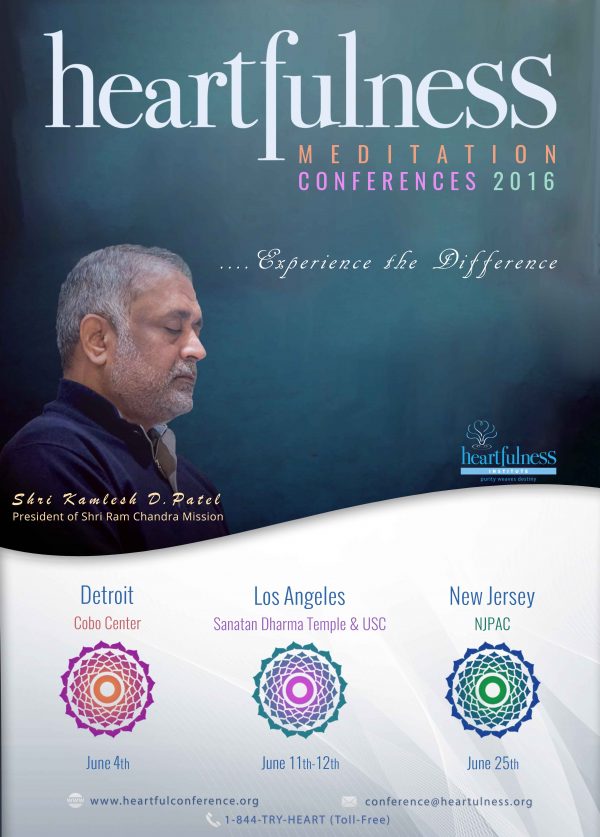
Register for the Meditation Conferences
Please contact us (worldmomsblog@gmail.com) for a free pass.
This is an original interview of Dr. Elizabeth Denley to World Moms Blog by Senior Editor, Purnima Ramakrishnan.
Photo Credit: Heartfulness Institute
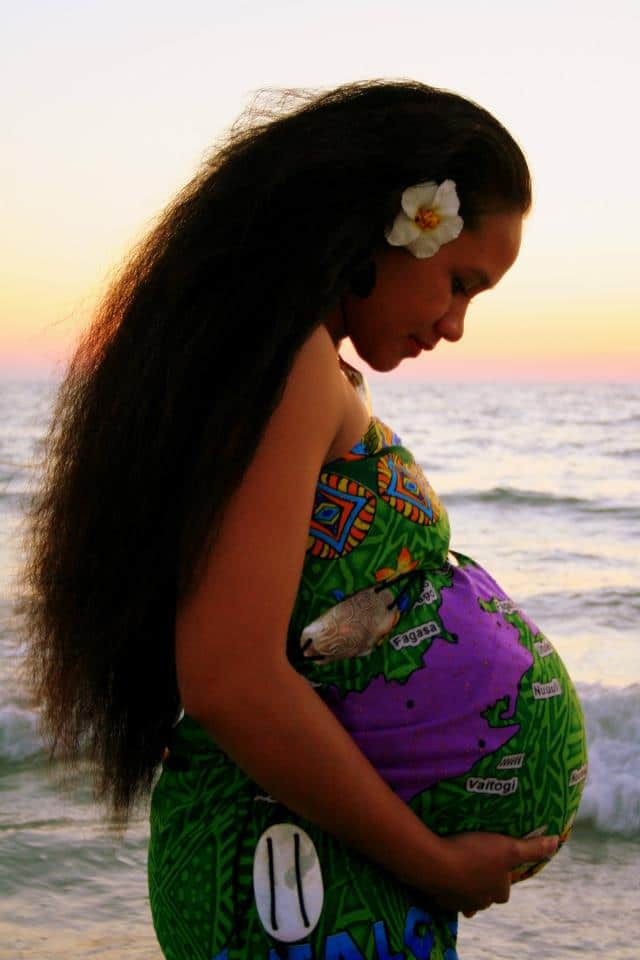
by ThinkSayBe | May 27, 2016 | 2016, Adolescence, Advice, Awareness, Being Considerate, Being Thankful, Blogging, Caring, Child Care, Childhood, Communication, Culture, Education, Expat Life, Eye on Culture, Family, Global Citizenship, Gratefulness, Happiness, Health, Helping, Humanity, Humor, Inspirational, International, Kids, Life, Life Balance, Life Lesson, Living Abroad, Motherhood, Moving, Multicultural, North America, Parenting, Partnerships, Relationships, Respect, Responsibility, Responsibility, The Americas, ThinkSayBe, Travel, USA, Womanhood, World Motherhood, Younger Children, Youth

If you’re a parent, or a child, or anyone, you may have heard the phrase. “It takes a village” (to raise a child). After reading a post written by a fellow contributor, KC, I remained in thought about this village that’s needed to raise our children.
KC is currently a stay-home-mum to a precious toddler, so you know she has one of the most rewarding and challenging positions in the universe; one weighted with a lot of responsibility, as well. Thankfully she takes the time to write about some of what’s going on in her world as a mum, a woman, and as a person, because out of her writing I found something I want to discuss, too. Check her out at http://www.mummyintransit.com. She is a really good writer, and she’s funny too.
In reading KC’s post I thought about my own experience as a child in Italy, a teenager in Tanzania, and an adult and parent in the United States. What was my village like? Who did my mum include in forming my personality and my worldview?
(more…)
I am a mom amongst some other titles life has fortunately given me. I love photography & the reward of someone being really happy about a photo I took of her/him. I work, I study, I try to pay attention to life. I like writing. I don't understand many things...especially why humans treat each other & other living & inanimate things so vilely sometimes. I like to be an idealist, but when most fails, I do my best to not be a pessimist: Life itself is entirely too beautiful, amazing & inspiring to forget that it is!
More Posts
Follow Me:


by Purnima Ramakrishnan | May 25, 2016 | 2016, Heartfulness, Inspirational, International, Interviews, North America, USA, World Interviews
“Please join us in the 2016 #Heartfulness Meditation Conference in the USA. If you are a World Moms Blog contributor, or reader, or fan, please contact us (worldmomsblog@gmail.com) for a free pass.”
This is part – 1 of the interview. Part – 2 of the interview with more insights is published here.
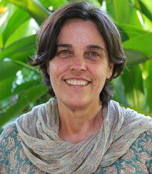
Dr. Elizebeth Denley, Trainer, Heartfulness Institute
Dr. Elizabeth Denley, a trainer and practitioner of Heartfulness Meditation (HFN) calls herself, “a student of the heart.” For the last twenty-six years she has been practising a heart-based meditation and facilitating and teaching others in that practice. She spends most of her time in Sydney Australia and Chennai India (my hometown!), and has two adult children.
Her undergraduate degree and PhD are in the field of ecology, and she has always had a deep interest in the relationship between science and spirituality, the human mind and vibratory heart, and the nature of the universe. She is also a musician and a writer, and has been active in values education and training for the last twenty years. She also heads the “History and Archives” department of the Heartfulness Institute as the Director.
Our Senior Editor, Purnima Ramakrishnan in India recently interviewed Dr. Denley for World Moms Blog.
Purnima Ramakrishnan: We want to get to know you! Tell us a little bit more about yourself as a mother, as a professional, as a meditator.
Elizabeth Denley: I am 60 now. I have lived a very eventful life. I was born in Australia, South of Sydeney. I have always been interested in learning, exploring, and studied music and dance as a child.
My parents encouraged me to explore life. They were not religious which helped me explore most of the spiritual traditions with an open heart and mind.
After high school, I joined medical school, but did not like it much, so I moved to biology studies and studied Ecology. I couldn’t cope up with the emotional life at Stanford University, which drove me to the quest towards spirituality.
After my post doctoral studies in the US, I moved back to Australia, and got married. My husband worked for the United Nations, with the Doctors Sans Borders, so we traveled a lot. My daughter was born in Paris. and when we were in Geneva, I discovered Heartfulness meditation in 1990. A week later, I met the then spiritual guide Chariji, and that was a turning point in my life — when I discovered my purpose of life. All the research work done on mind, matter, heart, and life studies made sudden sense to me.
In 1991, I became a trainer of Heartfulness meditation. And my son Lucas was born. We moved back to Australia. I was a home maker for a decade, while parenting and volunteering for the Heartfulness Institute in teaching meditation and doing administrative work for the organization.
In 2000, I moved back to the business world, and worked for 10 years, before finally retiring in 2010. It was very tough for me, because I never liked money and business. I always shied away from it. I was disgusted with the world. Then I understood business is about communication and relationships in a different scale. It was a very disillusioning experience, but it also taught me to grow up and handle my emotions.
PR: How has practicing meditation for “25” long years affected your life?
ED: It has transformed my life. I used to be very emotional, which did not enable me to live a really fulfilling life. I was capable and successful in what I was doing, but there was always something fundamentally missing in my life. I tried Tai chi. I tried other spiritual techniques. They all led me to something new and different, and eventually I tried Heartfulness Meditation.
At the time I was a typical western woman who grew up in the 60s and 70s. I was not able to deal with my life. I was frustrated and when I tried Heartfulness meditation, I knew evolution within me had started. It was a turning of the tide. Life did not overnight become easy. It was no magic wand. However, I knew the purpose of my life, and I knew how to deal with the rest of things that did not matter so much.
PR: Tell us a little bit about your children (because we are the World “Moms” Blog!). How has your meditation practice helped your kids?
ED: My Heartfulness practice made life easier for them. My daughter was 2 years old, when I first met my teacher. She had me as her mother before I started meditating whereas, my son was conceived when I was meditating. My son’s path in life is so much smoother. I am a better mother as a result of doing this.
Firstly, I am more straightforward, I am happier. There is more joy in me naturally.
Also my children were brought up in an environment, where there is a bigger love than what I or their father could offer. They grew up in an atmosphere which was charged with an atmosphere of Universal love. These like-minded people were open hearted. Not everybody is perfect. But there was genuine willingness to work on oneself, and open hearts and evolve.
My children have had their struggles. They had their teenage years. But they also had the ability to maneuver obstacles. They had the ability to smoothly sail.
PR: It is difficult to find time to allocate for meditation in today’s busy lives, when women are balancing jobs, parenting, home, and more. How did you find that elusive 30 minutes in the morning?
ED: When I first started HFN, my husband was travelling a lot with the UN. He was out of Geneva most of the time. And I had a 3 year old. Many times my daughter Gerry woke up at 5 AM. So, I waited. I fitted my spiritual practice around family life. And still today I would do that when there is a necessity. There are no hard and fast rules for women. Often I would meditate after feeding Lucas in the night!
There are, of course, a set of guidelines for the best time to meditate, which is at dawn.
But at times, it is not always easy. It is not always straightforward. You have to find and build your own rhythm. No woman is selfish – to tell her family – “I can’t help you now- because I am meditating.” So fit the practice around family life. It is a matter of being flexible.
Check out Part – 2 of Dr. Elizabeth Denley’s interview here.
If you would like to meet Dr. Denley, you can connect with her through social media or meet her in person at any of the US Heartfulness conferences coming up in June! In fact, she is chairing one of the breakout sessions in Detroit and will speak about “Heartfulness Education for Creating a Resilient, Well-Grounded Student.” She will interact with the audience and outline the educational initiatives of the Heartfulness Movement, such as the Conscious Living Program, U-Connect etc., and their impact so far.
A limited number of free seats to the Heartfulness conferences are available to contributors and fans of World Moms Blog. You can register here!: http://conference.heartfulnessinstitute.org/register/
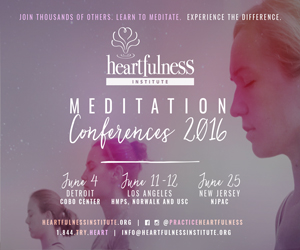
Register for the Heartfulness Conferences in June 2016!
This is an original post to World Moms Blog by Senior Editor, Purnima Ramakrishnan.
Photo credit to the author.
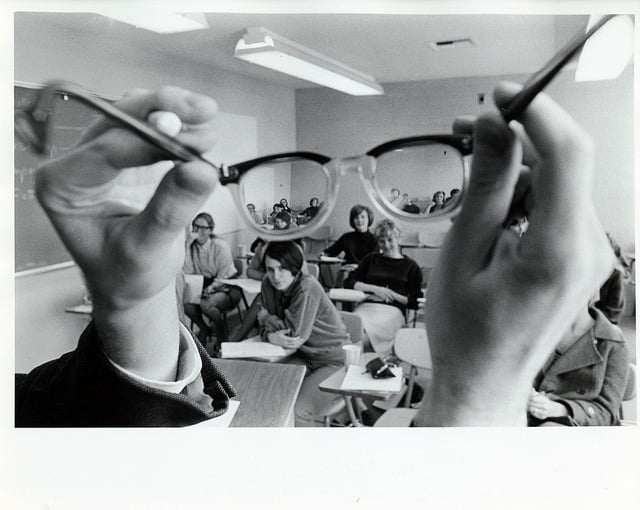
by Ecoziva (Brazil) | May 20, 2016 | 2016, Brazil, Domesticity, Education, Environment, Identity, Life, Life Balance, Life Lesson, Motherhood, Work, Working Mother, World Motherhood

When I was a teenager/young adult I wanted to change the world (as it happens with so many youngsters). And changing the world usually meant Doing Big Things.
Now, three kids and more than twenty years later, my saving the world efforts seem so distant. I grapple with alternating days when I stay home with the kids, sorting socks and washing dishes, and days teaching classes at the university, advising students’ research, and trying to do some research of my own.
At one point of my life I thought my career would be in the non-profit sector; i.e., I would be a professional environmentalist, forever. By then my volunteering efforts had evolved into parallel paying jobs related to social-environmental issues, and this kind of lifestyle went on for 12+ years.
I continued on to graduate school not because I wanted to become an academic, but because I thought it would be a great addition to what I already did. I found it exciting to go from project to project, often working on more than one at once. I felt almost repulsed by the thought of staying in the same job for the rest of my life, always doing the same thing. I even got a certain thrill from not knowing where my salary would come from after the current project ended.
My husband (who worked for the same NGO) was not as thrilled and dreamed of the day at least one of us would have a more stable job. Since I was already on the academic path in one way or the other, that person became me.
When I first became a professor I wasn’t overjoyed. Although I love to do research, teaching is a different story and it was very hard in the beginning. At this point I already had three children and the “saving the world” type of projects were in the past. Another dream that I tried to pursue (to become a professional writer) had also been buried. I sadly realized I wasn’t really passionate about anything anymore – except, of course, my kids.
By this time my husband had gotten a relatively stable government job, although he didn’t really love it. We were finally okay financially and we were living a comfortable life. Nevertheless, we began to question ourselves about our choices.
Were we still living according to the same principles we followed when we first met (especially in relation to the environment)? Were we fleeing our responsibility of making a difference in the world? Had we left our ideals aside for modern, middle class comforts? Were we still being true to our dreams?
At first I had a good excuse to avoid these issues because two of our kids were very small and I had to deal with all of the related motherhood issues. In parallel, I tried to make the most of my job focusing on the good things: stability, flexible hours, and the possibility of quantity time with my children even if that meant doing a lot of work at night and during the weekend. I told myself (and I still do), that there are many means to make a difference, even if in “small” ways.
After all, in practice, there are no real big things. Big things take place in small steps and often need more than one person involved. Also, what seems like small, local things, often involve a lot of work and may have a greater impact on the world than expected. No wonder one of the most popular environmentalist mottos is, “Think global, act local”.
Today, in my attempts to continue to be of service to the world, I try (for example) to be a good listener to my students because sometimes I sense they are more in need of a friendly ear than anything else. A great number of students suffer from depression and other related disorders, for instance. And it’s not that I serve as a psychologist or anything, but I frequently feel that just treating them kindly and making an effort to advise them extra well regarding academic issues makes a significant difference.
Yet the fact is, regardless of how we do in our present jobs, the sort of questions I listed before has been haunting us for the past few years. Now that our youngest is past three, these questions have resurfaced. The biggest issue that remains is how to be true to our dreams and ideals while at the same time guaranteeing enough food on the table (and healthcare, and a good education etc., etc.)?
This post will be continued in Part 2.
Please share your story below on how you have managed (or not) to follow your dreams, personally and professionally.
This post was inspired by two other posts: “Surviving the turmoil” and “My frame world”.
This is an original post to World Moms Blog by Ecoziva in Brazil.
Photo credit to Claremont Colleges Digital Library. This photo has a creative commons attribute license.
Eco, from the greek oikos means home; Ziva has many meanings and roots, including Hebrew (brilliance, light), Slovenian (goddess of life) and Sanskrit (blessing). In Brazil, where EcoZiva has lived for most of her life, giving birth is often termed “giving the light”; thus, she thought, a mother is “home to light” during the nine months of pregnancy, and so the penname EcoZiva came to be for World Moms Blog.
Born in the USA in a multi-ethnic extended family, EcoZiva is married and the mother of two boys (aged 12 and three) and a five-year-old girl and a three yearboy. She is trained as a biologist and presently an university researcher/professor, but also a volunteer at the local environmental movement.
More Posts























